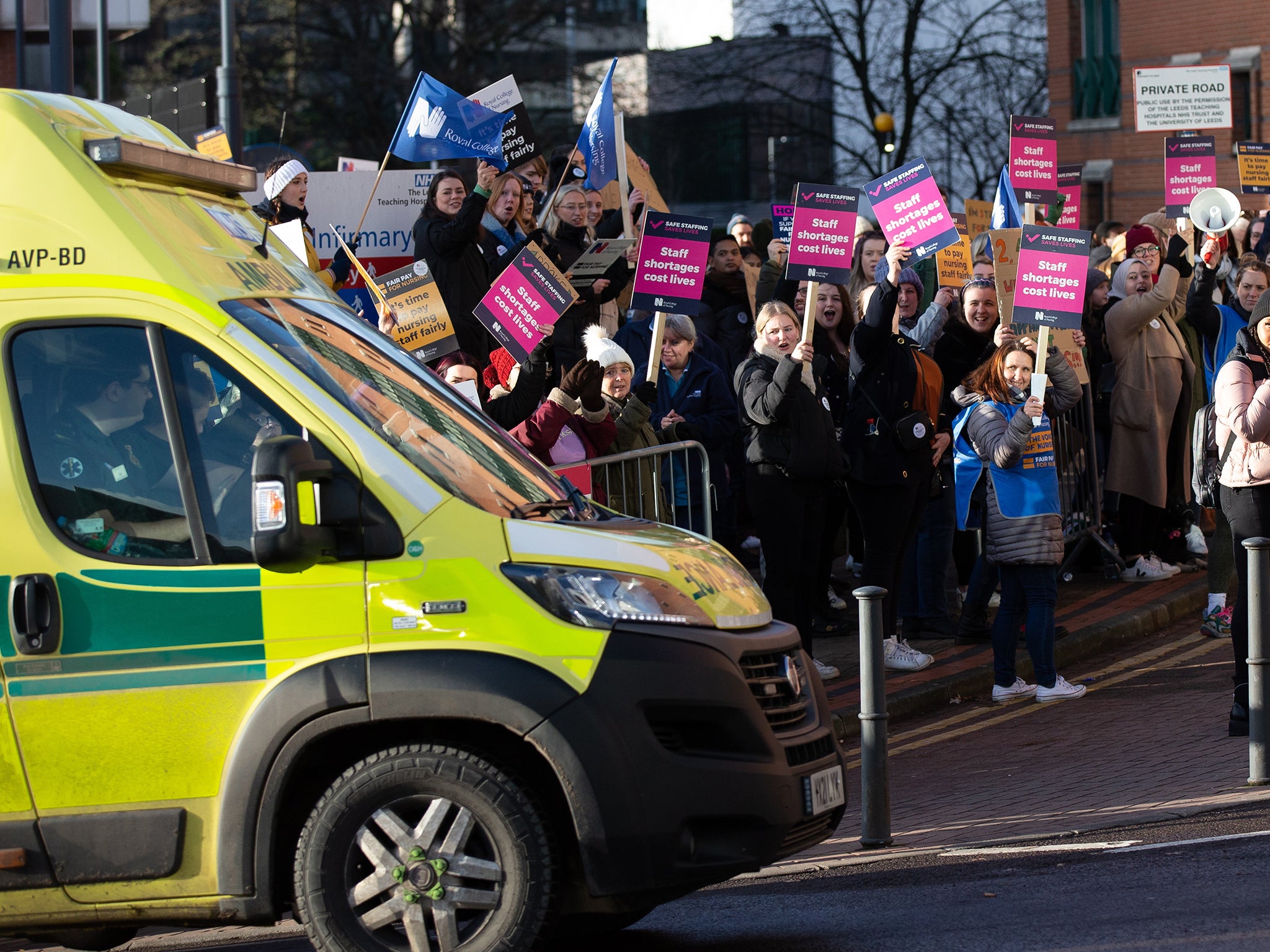Just one in 10 people blame nurses for the NHS strike as pressure mounts on the government to negotiate.
A new poll released on Tuesday as the effects of the strike bite shows net support for nurses has actually risen by 7 per cent since stoppages were announced in November.
The Savanta survey found that the majority of the public, 54 per cent, blame the government for resisting nurses' pay demands.
Just over a quarter, 27 per cent, blame trade unions, and only 11 per cent blame nurses.
The findings come as NHS leaders urged ministers to come to the table, warning there was "deep worry" in the health service they could not keep the public safe.
In a letter to Rishi Sunak, Matthew Taylor, the chief executive of the NHS Confederation, said the prime minister had to "be prepared to negotiate on the substantive issue of pay awards".
"This is not something NHS leaders would ever say lightly, but many now tell us that they cannot guarantee patient safety tomorrow," he said on the eve of a stoppage by ambulance workers.
"On health grounds alone, it is clear we have entered dangerous territory."
The government wants nurses to take a real-terms pay cut but the Royal College of Nursing say their wages need to be increased above inflation to help recruit and fill a gaping hole of 50,000 vacancies.
Ministers have deployed various arguments against a real terms wage rise, claiming it would stoke inflation, is unaffordable, and that the rates are set by an independent pay body.
The unprecedented walk-out by the nurses, which kicked off last Thursday, will be compounded by stoppages by ambulance drivers in England and Wales beginning on Wednesday. The ambulance workers are also asking for a pay rise above inflation.
Health secretary Steve Barclay met union representatives on Tuesday but did not discuss pay – only what care would still be provided during the strike.
Mr Barclay said after the meeting that the pay demands were "unaffordable during these challenging times", but he said he was "open to engaging with unions on how to make the NHS a better place to work"
Emma Levin, a senior political consultant at Savanta, which conducted the poll of public support, said: "The government may have hoped that, as the impact of the nurses strike started to take affect, the high levels of public support would begin to fall, but so far there has been very little sign of any wavering in public backing.
"While there is a chance that continued disruption over Christmas could change things, most say nurses should be able to strike during the winter period. With no resolution in sight and the majority blaming the government rather than the unions or the nurses, it could be a very unhappy new year for Rishi Sunak’s government."







Join our commenting forum
Join thought-provoking conversations, follow other Independent readers and see their replies
Comments